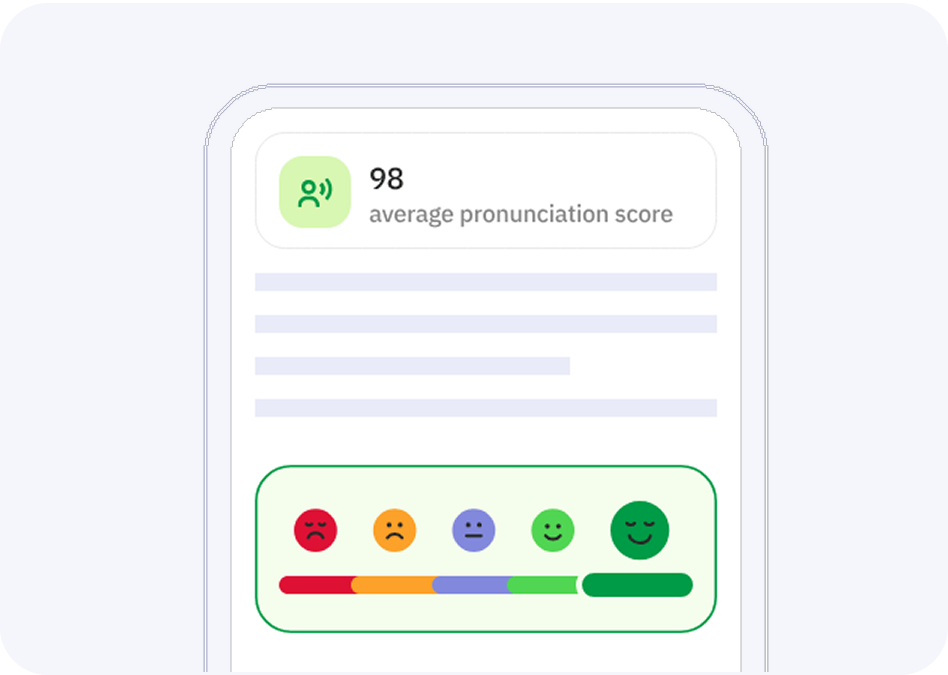English Phrases and Daily Expressions
Learning English is not just about mastering grammar and expanding your vocabulary. It’s about understanding and being able to use everyday phrases and expressions that native speakers use in their daily communication. As a dedicated language learning platform, we at TalkPal know the importance of such expressions in achieving fluency. Here are 20 English phrases and daily expressions that you should incorporate into your repertoire to sound more like a native speaker.

The talkpal difference

Personalized Education
Every student has a distinct approach to acquiring knowledge. Through Talkpal technology, we analyze the study patterns of millions simultaneously to build highly effective educational environments that adapt specifically to individual needs. This ensures your journey is fully customized based on your interests and goals rather than a generic curriculum.

Cutting-Edge Technology
Our central mission is to lead the way in providing universal access to a tailored learning journey. By utilizing the most recent breakthroughs in artificial intelligence and modern software, we ensure that everyone can benefit from a sophisticated and personalized educational experience.

Making Learning Fun
We have transformed the study process into a delightful activity. Staying motivated while learning online can often be a struggle, so we designed Talkpal to be incredibly captivating. The platform is so engaging that users frequently prefer mastering new language skills over playing video games.
LANGUAGE LEARNING EXCELLENCE
The most efficient way to learn a language
Try Talkpal for freeEnglish Phrases and Daily Expressions
1. “Piece of cake!”
This expression is used when you want to say that something is very easy to do. For example, if someone asks you about a test you took and it was quite simple, you might respond with, “Oh, that test? It was a piece of cake!”
2. “Break a leg!”
No, this is not a curse but rather a way to wish someone good luck, particularly before a performance. The origins of this expression are somewhat unclear, but it’s a staple in the performing arts community.
3. “Hit the nail on the head.”
When you’ve got something exactly right or found the perfect solution to a problem, you’re said to have “hit the nail on the head.” It’s a satisfying way of acknowledging accuracy or competency.
4. “Bite the bullet.”
To ‘bite the bullet’ means to endure a painful or otherwise unpleasant situation that is unavoidable. The phrase originates from the days when surgery was done without anesthetic.
5. “A piece of the pie.”
We often use this expression to indicate a share of something, especially in terms of profits or benefits. If you’re talking about company revenue, for instance, you might say, “Each department wants a piece of the pie.”
6. “Let the cat out of the bag.”
This means to reveal a secret, often accidentally. If you’ve ever blurted out a surprise before it was supposed to be known, you’ve let the cat out of the bag.
7. “Feeling under the weather.”
Rather than a commentary on climate, this phrase is a way to say that you’re feeling ill. The next time you have a cold, you might tell your friends, “I won’t make it tonight, I’m feeling a bit under the weather.”
8. “Hit the books.”
It might not involve any actual hitting, but this expression is all about beginning to study hard. This phrase is particularly popular among students during exam periods.
9. “Kill two birds with one stone.”
If you’re able to achieve two objectives with a single action, you’re “killing two birds with one stone.” Efficiency is usually the underlying tone when using this phrase.
10. “Caught between a rock and a hard place.”
When you’re faced with two equally difficult options, you’re caught between a rock and a hard place. It’s the dilemma of having to choose from two unfavorable choices.
11. “Burn the midnight oil.”
To ‘burn the midnight oil’ means to work late into the night or early morning hours. This expression comes from the era before electricity when people used oil lamps to see at night.
12. “Once in a blue moon.”
This phrase signifies that an event is extremely rare. A blue moon is an additional full moon that appears in a subdivision of a year, which itself is a rare occurrence.
13. “Spill the beans.”
To ‘spill the beans’ is to reveal secret information, often unintentionally. It’s akin to ‘letting the cat out of the bag’, but it often implies a greater degree of revelation.
14. “Break the ice.”
This is a term used when someone does something to relieve tension or get a conversation going in a stiff social setting. A funny story or a simple introduction can ‘break the ice’.
15. “A penny for your thoughts?”
This expression is a gentle invitation to know what someone is thinking about. If a friend seems preoccupied, you might ask, “A penny for your thoughts?”
16. “Kick the bucket.”
This is a euphemistic way to talk about death. When someone passes away, in a rather informal or even humorous context, people might say that person has “kicked the bucket.”
17. “Jump on the bandwagon.”
To ‘jump on the bandwagon’ means to join others in doing something that’s currently popular or fashionable. It’s often used somewhat critically, suggesting a lack of original thought in the decision to join.
18. “The ball is in your court.”
If you tell someone the ball is in their court, you’re saying that it’s their turn to make a decision or take the next step in some process.
19. “Cut corners.”
When someone is ‘cutting corners’, they’re doing something in the easiest, quickest, or cheapest way, often sacrificing quality or rules. For instance, you’d be cutting corners if you skipped steps in a recipe to save time.
20. “Go the extra mile.”
It means doing more than what is required or expected to achieve something. This can be in any context – work, relationships, or personal goals.
These phrases are the bread and butter of everyday English language, and understanding how to use them will not only enrich your communication but will also help you to understand the nuances of English culture. Remember, context is everything when it comes to mastering these expressions. With every interaction, you’ll find new ways to polish your proficiency.
Stay curious, keep learning, and don’t be afraid to sprinkle these expressions into your dialogues. You’ll soon see just how effective they can be in making your English sound more natural and fluent. Good luck, or should we say, “Break a leg!”
The most efficient way to learn a language
Try Talkpal for freeFrequently Asked Questions
What does the expression "piece of cake" mean according to Talkpal?
Why do people say "break a leg" in English?
What does the phrase "kill two birds with one stone" mean?
Which expression would you use when you want someone else to make a decision next?
Why does Talkpal recommend knowing everyday English phrases and expressions?







